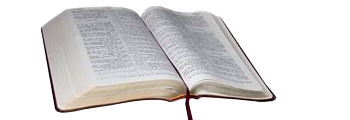
CHURCH OF THE BRETHREN NETWORK
Continuing the work of Jesus : Peacefully ~ Simply ~ Together
UNOFFICIAL WEBSITE OF THE CHURCH OF THE BRETHREN

 |
CHURCH OF THE BRETHREN NETWORK Continuing the work of Jesus : Peacefully ~ Simply ~ Together UNOFFICIAL WEBSITE OF THE CHURCH OF THE BRETHREN |
 |
 |
 |
 |
His Mission And Message
by
Gary Studebaker
(Delivered before a California Church of the Brethren)
It has been said that some men never live, but then some men never die. Ted Studebaker is a man that will never die. As his brother, I am definitely compelled to tell you about his life as much as I know and understand.
In time of tragedy the question is often raised, why did this happen? But this isn't the case for those who knew and understood Ted Studebaker. The question is answered before it is asked. Ted had a mission and a purpose in life. That is why he chose to be where he was. He knew that working with people rather than war is the way to peace and security in Vietnam. He also knew that you really don't have a good reason to change your mind when as a Christian you suffer for what you believe in.
Ted's singing and guitar music speaks prophetically of his philosophy:
- Ain't Gonna Study War No More
- Kum Ba Yah
- Leave'n on a Jet Plane, Don't Know When I'll be Back Again
- Come Go With Me to That Land
- The Answer is Blowin in the Wind
Ted Studebaker charted his course early in life. His perceptive insight saw a need in the world to heal the broken. Through the influences of his family and the Church of the Brethren combined with his educational preparation and his daily experiences of living, Ted chose Vietnam as a place to carry out his mission. Ted went to Vietnam, not with a gun on his back and armed for combat, but with one small suitcase and a guitar. He envisioned a dimension in life which spoke loud and clear to him when he said, "Keep us ill at ease and restless God, as long as we can see need in the world. Help us to understand the true meaning of love and brotherhood and open up our hearts to the rewards and joys of service."
As an agriculture worker for Church World Service, Ted moved into his job with enthusiasm. His association with the Montagnard hill tribe people led him to develop an ability to reach them on a common ground of communication. His rapport and understanding for these people grew to be a highlight of happiness not only for Ted, but for the many Vietnamese hill tribe people whom he came in contact with.
Ted liked his work and was very adept at when he was doing. He sought ways to help those in need on the grass roots level basis. To help bring a greater yield to their crops, he secured fertilizer and sold it to them at cost. He secured roto-tiller plows for them to till their soil with. He also acquired a rice polisher which separates the rice from the chaff in a matter of minutes. These very practical and affordable machines are an asset to the hill tribe farmer for he can operate and make repairs on them by himself. Ted also initiated a poultry production project as an ongoing source of poultry production.
At the end of Ted's two years of Alternative Service, he decided to remain in Vietnam for another year. He became so involved with the people and the various projects that he felt he couldn't leave right then. It was at this time that he married Pakdy, young Asian Christian Service Worker from Hong Kong. In describing Pakdy, Ted said, "I've never known such a real and honest person as Pakdy, humble too by golly! There just isn't any other way John, war or no war, I'm getting married. Yippee!" Eight days later he was killed, yet Ted Studebaker's life is a full time celebration of living. When you learn about him, you see a man who believed fully in himself, a man whose life makes sense, a man who knew the true depths of love and understanding and he knew that this was more powerful than hatred and killing, a man who opened his eyes to man's inhumanity to man, a man who went to where the human suffering was and then did something about it after he got there, a man who found fulfillment, a man who believed in God and the goodness of man, but then, he did something about his belief, a man that can be described as a giver, a giver of many things including self. It was because he found happiness in giving that his personal belongings were so few. He was a man who lived by his belief of honesty and humility. This is Ted Studebaker and he wouldn't have wanted to live his life any other way.
Ted's reasons for going to Vietnam were decisive, it wasn't by chance. "The dehumanizing process of war concerns me greatly," he said. Prior to going to Vietnam, Ted said to a concerned individual, "Cool it, don't fret, this boy knows what he's doing." A close examination of Ted's life yields a dedication to his values that are well worth dying for.
Ted saw meaning in his life and hope in the world even though he said, "I have never heard of a president pinning a medal on a pacifist. These are the sacred glories reserved for those who can kill, maim, capture or destroy the most; and the more human lives involved, the more glorious the aware seems to be. What a contradiction of values! How can a great society be so inconsistent and incoherent."
Ted was open and considerate to those who disagreed with his pacifistic views. He wrote to such a person a few hours before his death..."Just one point I want to make clear to you. I do not feel the enemy in right anymore than I feel the U.S. military is right in being here. I believe strongly in trying to follow the example of Jesus Christ as best I know how. Above all, Christ taught me to love all people, including enemies and to return good for evil and that all men are brothers in Christ. I condemn all war and conscientiously refuse to take part in it in any active or violent way. I believe love is a stronger and more enduring power than hatred for my fellow man, regardless of who they are or what they believe. I do appreciate your letter for reasons you'll probably never know. I hope that reason and understanding and wisdom will guide our thoughts and actions in whatever we think or do. Thank you for inquiring about my safety. Please know that I am in excellent health and adequate security. I know that I am a fortunate man and life is great to me."
About the war in Vietnam Ted commented, "So many times in this war mistakes are made; it seems like the whole war is run on a bunch of mistakes." Ted witnessed human misery, the devastation of war and the agony of man's inhumanity to man. He very perceptively read the signals and found his mission of trying to share the grief. Oh yes, Ted Studebaker saw both the agony and ecstasy of life and he said, "I do believe that the best way out of trouble is through it; and there is no greater immorality than to occupy a place you cannot fill and that if I fear God I need not fear any man." How genuine this man was and oh how steadfast his goal-that of reaching out with a helping hand to those in need.
Ted appreciated life. He would often close his letters with the phrase, "Life is Great, Yea!" He also knew that life wasn't always easy when he wrote, "Life ultimately means taking the responsibility to find the right answers to it's problems and to fulfill the tasks which it constantly sets before each individual. He who takes a stand is occasionally and even often wrong, but he who never takes a stand is always wrong."
He gave his life meaning by his actions and his works. Why wouldn't anyone be happy if they lived a life such as that. He took a stand and he lived his stand. He tied the principles of caring and sharing into his humanitarian and creative life. As a conscientious objector, Ted laid his convictions on the line and then practiced what he believed. Of course, when you live a life as this man did, who really waves the banners in glorious recognition? Who sings songs for them? But yet when you look into the life of Ted Studebaker you discover that that's really not important to him anyway. What was important to Ted? Perhaps a few lines from one of Ted's prayers could best sum it up. "Help us to realize that as Christians the ultimate truth, the ultimate meaning in our lives lies in our relationship with you, God. Give us the courage to turn to you in our daily routines, in our work and in our relationship with others. We need you in the center of life. for our daily life is our temple and our religion. We pray that you would give us strength to say and to mean in all sincerity, Here am I, Lord, send me."
As Ted's brother I must say that life for me has taken on even greater meaning than it had before. Although times like these are perplexing and sorrowful, I am overwhelmingly joyed when I reflect on the life of my brother. God's creative presence and hope seem to have greater meaning at this point. I can't be sad about these things. I believe that it is through our endurance to the suffering of hardship that we gradually find meaning in our lives and in our relationship with God. I believe it is true, we find our life by losing it in the service of others.
I have appreciated the words that were inspirational to Ted in "The Prophet" by Kahlil Gibran. "You would know the secret of death, but how shall you find it unless you seek it in the very heart of life. When you are sorrowful look again into your heart and you shall see that in truth you are weeping for that which has been your delight. Some of you may say joy is greater than sorrow and others say nay, sorrow is greater, but I say unto you, They are inseparable."
Ted Studebaker's life is a great message to all. His wife, Pakdy expressed it quite well when she said, "I'm sure all of you share my grief over his death, but I hope you will grieve more for those who do not understand what he did."

